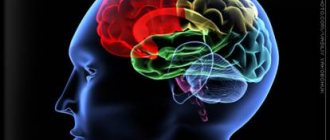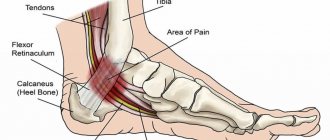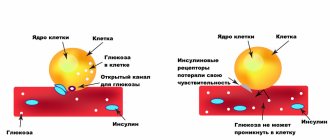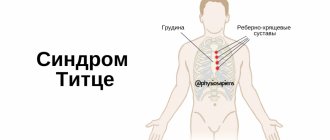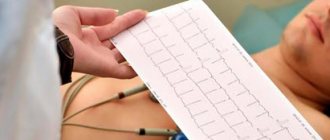Weakness
is a subjective feeling of lack of energy in everyday situations. Complaints of weakness usually arise when actions that were previously familiar and natural suddenly begin to require special effort.
Weakness is often accompanied by symptoms such as dizziness, confusion, drowsiness, headaches or muscle pain.
Fatigue at the end of a working day or after performing a long or complex job cannot be considered a weakness, since such fatigue is natural for the body. Normal fatigue goes away after rest; healthy sleep and well-spent weekends help a lot. But if sleep does not bring cheerfulness, and a person, having just woken up, already feels tired, then there is a reason to consult a doctor.
Causes of weakness
Weakness can be caused by a number of reasons, including:
- avitaminosis. Weakness is often caused by a lack of vitamin B12, which is essential for making red blood cells (RBCs) and preventing anemia, and is also important for cell growth. Vitamin B12 deficiency leads to the development of anemia, which is considered the most common cause of general weakness. Another vitamin whose deficiency leads to weakness is vitamin D. This vitamin is produced by the body when exposed to sunlight. Therefore, in autumn and winter, when daylight hours are short and the sun does not appear often, a lack of vitamin D may be the cause of weakness;
- depression;
- thyroid diseases. Weakness can occur with both increased thyroid function (hyperthyroidism) and decreased function (hypothyroidism). With hypothyroidism, as a rule, there is weakness in the arms and legs, which is described by patients as “everything falls out of hand”, “legs give way”. With hyperthyroidism, general weakness is observed against the background of other characteristic symptoms (nervous excitability, hand tremors, elevated temperature, rapid heartbeat, weight loss while maintaining appetite);
- vegetative-vascular dystonia;
- chronic fatigue syndrome, indicating extreme depletion of vitality;
- Celiac enteropathy (celiac disease) is the inability of the intestines to digest gluten. If at the same time a person consumes products made from flour - bread, pastries, pasta, pizza, etc. – manifestations of indigestion develop (flatulence, diarrhea), accompanied by constant fatigue;
- diabetes;
- diseases of the cardiovascular system;
- oncological diseases. In this case, weakness is usually accompanied by low-grade fever;
- lack of fluid in the body. Weakness often comes in the summer during hot weather, when the body loses a lot of water, and it is not possible to restore the water balance in time;
- some medications (antihistamines, antidepressants, beta blockers).
An attack of weakness can also occur in the following cases:
- trauma (with large blood loss);
- brain injury (in combination with neurological symptoms);
- menses;
- intoxication (including infectious diseases such as influenza).
Diagnostics
The primary examination is carried out by a general practitioner. The initial diagnostic stage consists of a detailed collection of all complaints, a history of the development of the disease, on the basis of which the presence of a certain pathology or risk factor is assumed. Then, based on the complaints, special laboratory and instrumental methods are prescribed that make it possible to confirm the probable causes of weakness. The most informative ones are:
- Neurological examination
. To study the functioning of the nervous system, cognitive functions are examined, and the time of occurrence of dermographism is measured. Specific tests (orthostatic and Danini-Aschner) reveal discoordination of sympathetic and parasympathetic regulation. The functional activity of the brain is clarified using EEG. - Blood tests
. A general blood test determines leukocytosis, hemoglobin and red blood cell levels. A biochemical study is carried out to assess liver function, detect signs of inflammation or residual electrolyte disturbances. The content of free T3 and T4 in the blood must be taken into account, and a fasting glucose test is done. - Coprogram
. If weakness occurs after symptoms of poisoning, it is necessary to do a microscopic examination of the stool and culture the material on nutrient media to detect pathogenic microorganisms. In case of prolonged dyspepsia for no apparent reason and malabsorption syndrome, stool is examined for the level of fecal elastase and specific antigen H. pylori. - Ultrasound examination
. If there are complaints from the digestive system, a survey ultrasound of the abdominal organs and retroperitoneal space is performed. In women, the pelvic organs are additionally visualized. If there are signs of a pathological process, more informative examinations are recommended - endoscopy, radiography of the intestine using a contrast agent. - ECG
. In middle-aged and elderly patients, an electrocardiogram must be recorded in standard leads and with a load. For a detailed examination of the heart, 24-hour Holter monitoring is effective. To examine the anatomical features of the heart and identify signs of valve damage, echocardiography with vascular Dopplerography is performed. - Additional methods
. To study the respiratory system, a chest x-ray is taken. Spirography helps to assess the function of external respiration. If weakness is caused by a lack of thyroid hormones, scintigraphy of the thyroid gland with iodine is indicated to diagnose organic damage. MRI and CT scan of the brain will help rule out inflammation and degenerative changes.
Weakness and dizziness
Dizziness quite often occurs against a background of general weakness. A combination of these symptoms may occur in the following cases:
- anemia;
- cerebrovascular accidents;
- a sharp increase or decrease in blood pressure;
- oncological diseases;
- stress;
- in women - during menstruation or menopause.
Weakness and drowsiness
Patients often complain that they want to sleep, but do not have enough strength for normal life activities. The combination of weakness and drowsiness is possible for the following reasons:
- lack of oxygen. The urban atmosphere is poor in oxygen. Constant stay in the city contributes to the development of weakness and drowsiness;
- decrease in atmospheric pressure and magnetic storms. People who are sensitive to weather changes are called weather dependent. If you are weather dependent, bad weather may cause your weakness and drowsiness;
- avitaminosis;
- poor or unhealthy diet;
- hormonal disorders;
- alcohol abuse;
- chronic fatigue syndrome;
- vegetative-vascular dystonia;
- other diseases (including infectious ones - in the early stages, when other symptoms have not yet appeared).
Weakness: what to do?
If weakness is not accompanied by any disturbing symptoms, you can improve your well-being by following these recommendations:
- provide yourself with a normal amount of sleep (6-8 hours a day);
- keep a daily routine (go to bed and get up at the same time);
- try not to be nervous, relieve yourself of stress;
- exercise, provide yourself with optimal physical activity;
- spend more time in the fresh air;
- optimize your nutrition. It should be regular and balanced. Avoid fatty foods. If you are overweight, try to get rid of it;
- make sure to drink enough water (at least 2 liters per day);
- quit smoking and limit your alcohol consumption.
Treatment
Help before diagnosis
If weakness is caused by natural causes, it is enough to normalize your lifestyle. Patients are recommended to get a full night's sleep of at least 7 hours, avoid night shifts at work, and minimize stressful situations and conflicts. A change of environment helps to cope with fatigue - a trip to a sanatorium, a vacation at sea. It is important to provide a nutritious diet high in protein foods, fresh vegetables and fruits. It is advisable to completely avoid alcohol. For prolonged weakness, combined with other symptoms, the doctor selects treatment.
Normalizing your lifestyle is the first step towards combating loss of strength
Conservative therapy
The main treatment for general malaise is therapy aimed at eliminating the cause of symptoms: taking antihistamines for allergic reactions, cardiotropic drugs for cardiovascular diseases, hepatoprotectors for liver damage. For weakness after food poisoning, a diet excluding spicy and smoked foods and extractive substances is recommended. Symptomatic medications are used that improve overall well-being and restore performance. The most effective are:
- Adaptogens
. Concentrated plant extracts of ginseng, eleutherococcus and other medicinal plants tone and invigorate, increase the activity of metabolic processes. Medicines are taken for a long time, they have virtually no contraindications or side effects. - Nootropics
. The drugs stimulate blood circulation in the brain and ensure the delivery of nutrients to neurons. Nootropics improve cognitive functions of the brain, increase memory and concentration. The drugs are used for encephalopathy, the consequences of head injury and encephalitis. - Antidepressants
. Specific serotonin receptor agonists as etiotropic therapy help with depressive disorders. In minimal doses they are indicated for chronic fatigue and malaise caused by severe diseases of the internal organs and endocrine glands. - Vitamins
. For peripheral neuropathies and other neurological disorders, B vitamins are prescribed. To improve general well-being and normalize metabolism, ascorbic acid and the antioxidant tocopherol are used. Vitamin preparations are combined with essential microelements. - Sorbents.
Preparations based on activated carbon are effective for ailments caused by poisoning. The products bind and remove toxins from the gastrointestinal tract. In case of severe intoxication, parenteral administration of infusion saline solutions is necessary.
Physiotherapy
To reduce weakness, various methods of hydrotherapy (Charcot's shower, contrast shower) are useful, which have a general strengthening and tonic effect. A similar effect is observed after using acupuncture and electromagnetic therapy. To improve muscle tone and endurance, a general massage is prescribed and an individual exercise therapy complex is selected. People suffering from depressive conditions require long-term psychotherapy in several areas: auto-training, cognitive behavioral therapy, gestalt therapy.
When should you see a doctor if you feel weak?
If weakness does not go away within a few days or, moreover, lasts more than two weeks, you should definitely consult a doctor.
You should not hesitate to consult a doctor if weakness is accompanied by symptoms such as:
- dyspnea;
- cough;
- fever, chills, increased temperature;
- stomach upset;
- sudden weight loss;
- mood changes, apathy, depression.
Phosphorus-calcium metabolism disorders
Phosphorus-calcium metabolism disorders can be suspected in persons with general and muscle weakness, bone pain, low mood, complaints of thirst, frequent urination, vomiting and diarrhea (not due to other reasons), urolithiasis, frequent recurrence of gastric and duodenal ulcers , low-traumatic (occurring with minimal trauma) fractures, muscle cramps, with chronic kidney disease, long-term use of glucocorticosteroids, with low or no insolation, including people who are completely covered with clothing for religious or national reasons or who do not leave the house.
Which doctor should I contact about weakness?
If weakness is the main complaint, then it is best to consult a general practitioner (general practitioner or family doctor).
If you have stomach problems due to weakness, you can consult a gastroenterologist.
If weakness is accompanied by pain or discomfort in the heart area, you should consult a cardiologist.
Be prepared for the fact that you may be referred for consultation to doctors of such specialties as a hematologist, oncologist, neurologist, endocrinologist, or psychotherapist.


